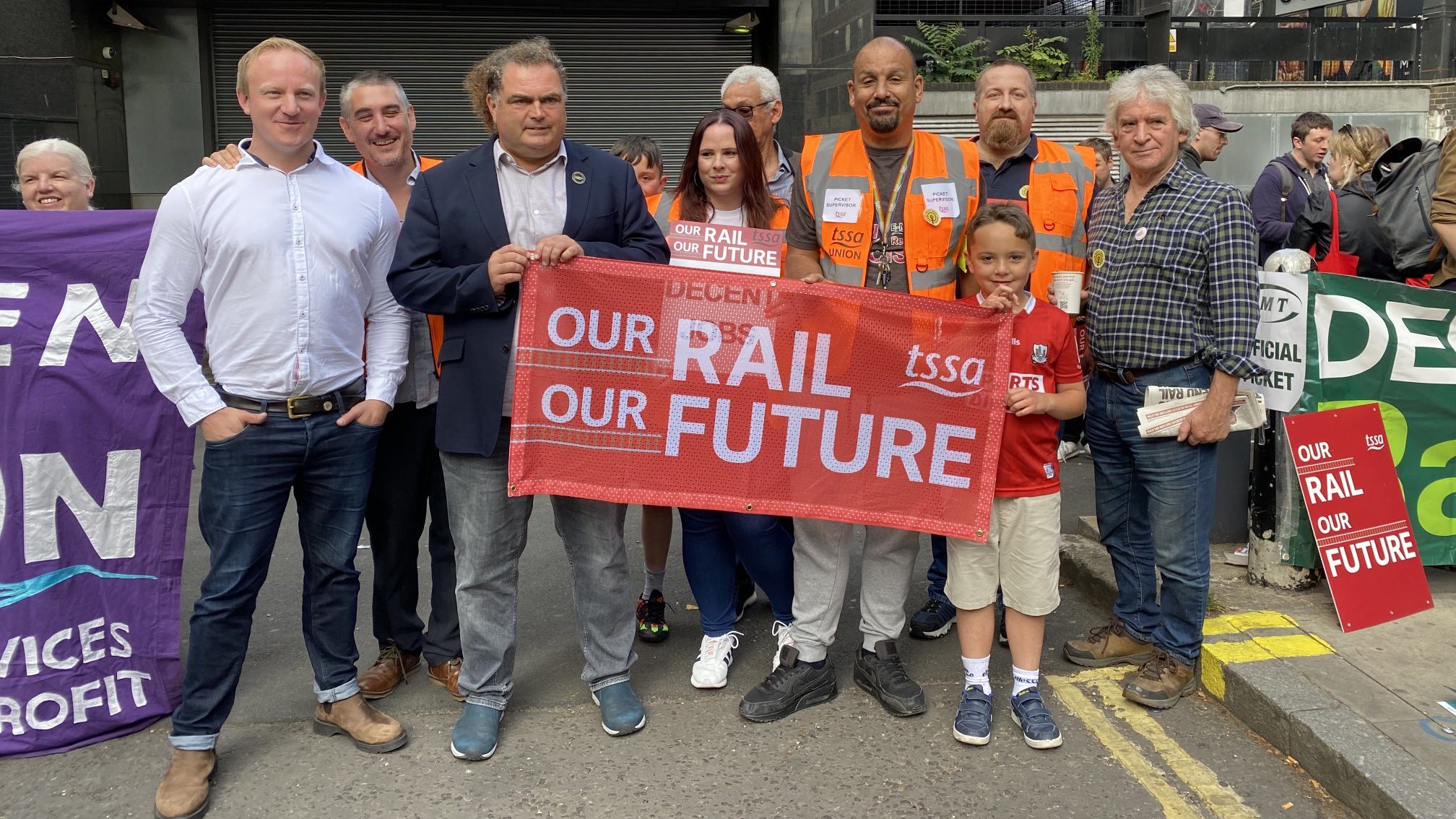Thousands of railway workers are again on strike over low pay and cuts to Britain’s rail network. But this time there’s a renewed focus on the climate crisis after Britain last week recorded its hottest ever temperature.
Over 40,000 workers across Network Rail and 14 train operating companies are taking part in the strike, organised by unions the RMT and the TSSA, leaving millions facing disrupted services across the railways.
The RMT is fighting for a 7 per cent pay rise for railway workers, in the face of soaring inflation reaching 9.4 per cent, and claims that Network Rail is threatening to impose compulsory redundancies and “unsafe” cuts to maintenance works.
- How much should my pay rise to beat inflation?
- As strike action escalates, these are the union leaders you may come to know
- What is my right to strike?
“You’ve got to make the connection between the climate crisis, the planet burning, and investing into our public transport network,” shadow transport minister Sam Tarry told The Big Issue outside London’s Euston station.
Tarry had joined striking workers in defiance of Labour leader Keir Starmer, who said frontbenchers should stay away from picket lines.
“The Labour Party in opposition needs to be the Labour Party in power,” Starmer said on Tuesday. “And a government doesn’t go on picket lines.”









